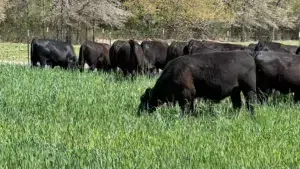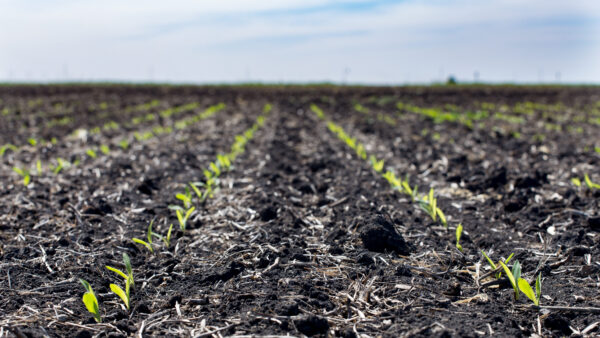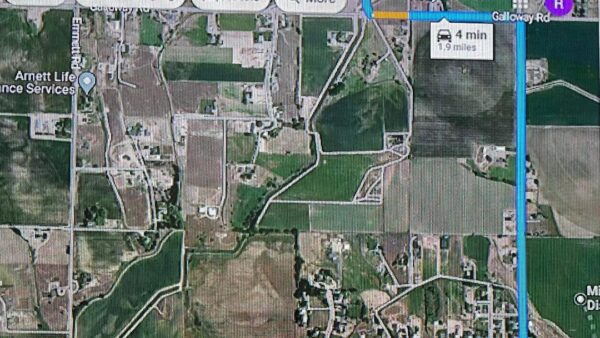Alforex Seeds Beats Monsanto, Forage Genetics International to the Market.
It’s been reported and thought that Monsanto in partnership with Forage Genetics International would be the first to market with a low-lignin alfalfa, but at this year’s World Dairy Expo, Alforex Seeds launched Hi-Gest low-lignin alfalfa.
Following eight years of research and extensive testing, conventionally bred Hi-Gest is being described as a “game changer,” offering improved digestibility, high yields and additional harvest flexibility to farmers.
Lignin is a structural component of alfalfa that is not digestible by livestock. As part of the research, agronomists, animal nutritionists, breeders and technical advisors working on Hi-Gest tracked digestible fiber algorithms to monitor how the low lignin is broken down and digested in dairy cows. “Simply stated, low-lignin alfalfa delivers improved digestibility and allows cows to increase dry matter intake, yielding more milk per ton of alfalfa,” explains Ron Cornish, general manager for Alforex Seeds.
Hi-Gest alfalfa
|
Alforex Seeds, a subsidiary of Dow AgroSciences, reports that dairy cows fed Hi-Gest alfalfa could produce up to an additional 2.5 pounds of milk per cow per day. Additionally, low-lignin alfalfa presents an opportunity to reduce feed ration costs.
David Johnson, an Alforex Seeds team member and breeder, says that Hi-Gest alfalfa takes away the trade-off that has traditionally existed between high forage yields and high forage quality.
A limited number of Hi-Gest dormancies are being offered in select regions during the forage’s introductory season. Alforex Seeds will roll out additional dormancies across an expanded growing area in 2015.
The other benefit that low-lignin alfalfa offers farmers is the added flexibility during harvest.
“Farmers can harvest on their regular schedule and get higher-quality hay, or they can choose to delay the harvest by up to seven days and get a hay quality comparable to harvests they received before using Hi-Gest,” Cornish explains.
Waiting Game
According to Monsanto’s website, its genetically modified reduced-lignin alfalfa is still waiting regulatory approval by the U.S. Department of Agriculture. Its petition for nonregulated status of reduced-lignin alfalfa has been in a holding pattern since November of 2012.
Mark McCaslin, Forage Genetics International vice president, says he’s been out talking about the benefits of low-lignin alfalfa for the past four years as the two companies have moved from the discovery phase and proof of concept.
While it’s not Monsanto’s reduced-lignin alfalfa, McCaslin says “there’s a lot of excitement among growers.”
Monsanto and Forage Genetics International developed a biotechnology-derived low-lignin alfalfa, KK179, by suppressing a key enzyme during the plant’s synthesis of lignin, which results in a 12 percent lower lignin content, according to the deregulation petition before the USDA.
“Rather than putting a new gene in the plant, we took an existing gene and turned down the volume — commonly called a ‘knock out,’” McCaslin explains, noting that from a regulatory standpoint, it’s a little different. “I wouldn’t say that it will expedite the regulatory process, but it probably simplifies some of the analysis.”
While Monsanto and Forage Genetics International’s reduced-lignin alfalfa remains on hold, they’re seeing great success with Genuity Roundup Ready alfalfa, which was genetically engineered to resist glyphosate herbicides.
“We feel good that farmers are finding value in the trait,” McCaslin says. “It’s a unique tool for weed control in alfalfa, especially during stand establishment, but also for control of perennial weeds in established stands.”
In late 2001, the University of California released results of a survey that showed 72 percent of U.S. respondents who grew Roundup Ready alfalfa would grow it again. Forage Genetics International conducted its own market research that echoes those findings. “We’ve done quite a few grower surveys to get feedback from growers in terms of their experience with Roundup Ready technology, and what we see generally in all parts of the country is … those growers who are trying it are reporting that they’ve had a positive experience and are planting more acres,” McCaslin says.
Adding Value
Anything that adds value for growers is likely to be well-received.
“To add value to the seed … is a good thing for the industry and for agriculture,” McCaslin says. “I think the industry is going to be supportive of anything that adds value to crops and helps farmers be more profitable.”
There’s been talk that once Monsanto and Forage Genetics International’s low-lignin alfalfa is deregulated, the companies will look to combine it with their Roundup Ready technology.
“We think both of these traits add significant value and flexibility for growers,” McCaslin says.
Julie Deering













